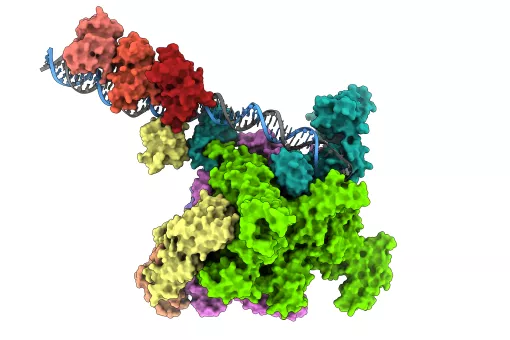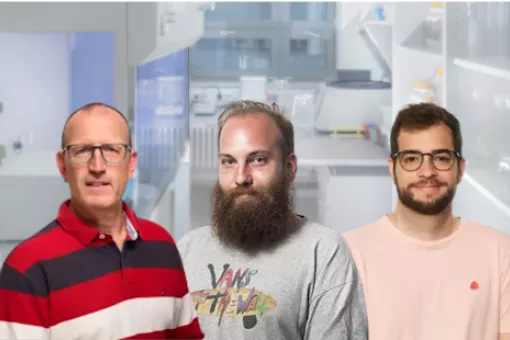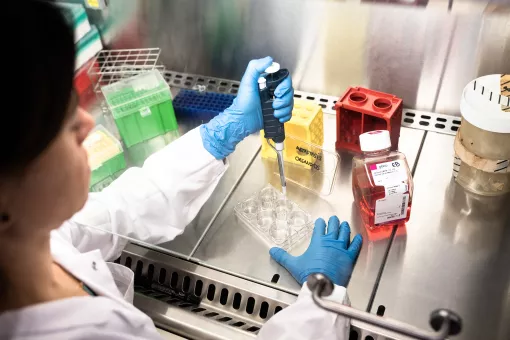Images
The study, published in the journal Molecular Biology and Evolution, has been headed by Lluís Ribas, at IRB Barcelona.
What makes distinct species have different proteins? Is there a key that allows eukaryotic cells to produce proteins involved in multicellularity that are mostly absent in prokaryotes?
These are some of the questions addressed by the scientists headed by ICREA researcher Lluís Ribas, group leader of the Gene Translation lab at the Institute for Research in Biomedicine (IRB Barcelona). Their work has led to the discovery of a mechanism that allows eukaryotic cells to synthesize proteins that bacteria find hard to produce.
Published recently in the journal Molecular Biology and Evolution, the study has been done in collaboration with the team headed by Iñaki Ruiz-Trillo, ICREA researcher at the Institute of Evolutionary Biology in Barcelona.
“We discovered and described a mechanism evolved in eukaryotes that facilitates the synthesis of large, unstructured proteins such as those present in the extracellular matrix. Those are the proteins that surround each cell and allow them to associate and communicate with their environment” says Lluís Ribas.
The results of the research explain that the emergence of this functional improvement in some transfer RNAs (tRNA) facilitated the synthesis of proteins highly enriched in a specific set of amino acids, and drove an enrichment of genes coding for these tRNAs in eukaryotic genomes.
Many of these proteins are highly relevant to human health, and understanding the mechanisms essential to their synthesis may allow the development of strategies to inhibit their production in those diseases caused by their overabundance.
This study has been supported by the Ministry of Economy and Competitiveness (now called Ministry of Science, Innovation and Universities).
Meet Lluís Ribas in this "Meet Our Science" video:
Reference article:
Àlbert Rafels-Ybern, Adrian Gabriel Torres, Noelia Camacho, Andrea Herencia-Ropero, Helena Roura Frigolé, Thomas F Wulff, Marina Raboteg, Albert Bordons, Xavier Grau-Bove, Iñaki Ruiz-Trillo, Lluís Ribas de Pouplana
The expansion of Inosine at the wobble position of tRNAs, and its role in the evolution of proteomes
Molecular Biology and Evolution (2018) DOI: 10.1093/molbev/msy245
About IRB Barcelona
The Institute for Research in Biomedicine (IRB Barcelona) pursues a society free of disease. To this end, it conducts multidisciplinary research of excellence to cure cancer and other diseases linked to ageing. It establishes technology transfer agreements with the pharmaceutical industry and major hospitals to bring research results closer to society, and organises a range of science outreach activities to engage the public in an open dialogue. IRB Barcelona is an international centre that hosts 400 researchers and more than 30 nationalities. Recognised as a Severo Ochoa Centre of Excellence since 2011, IRB Barcelona is a CERCA centre and member of the Barcelona Institute of Science and Technology (BIST).











